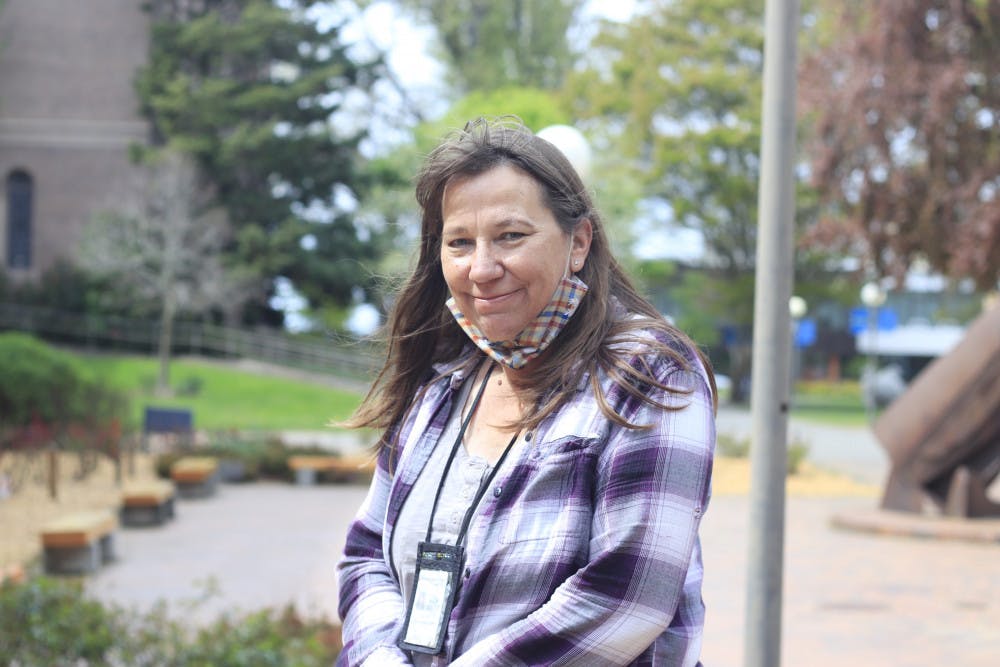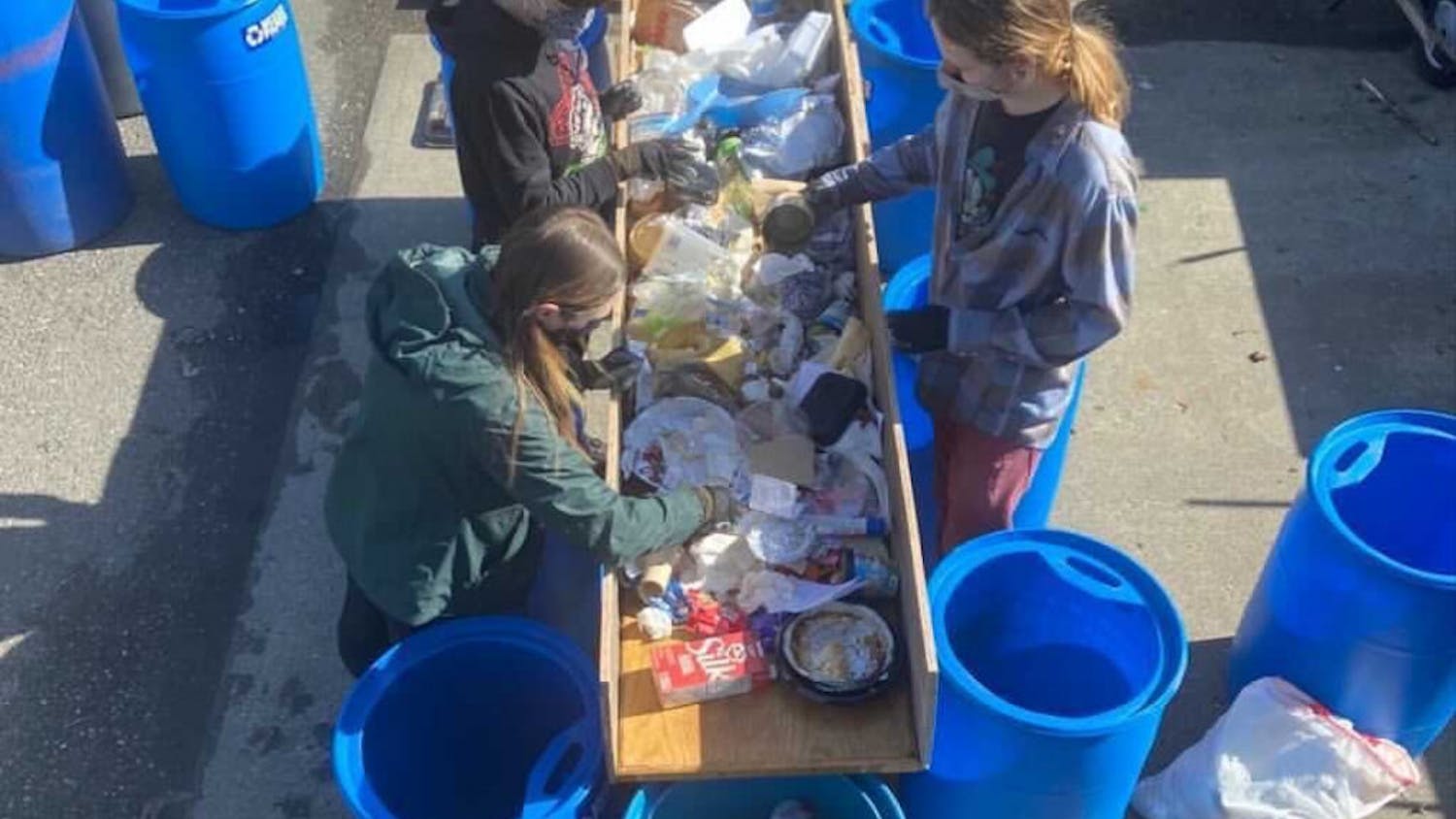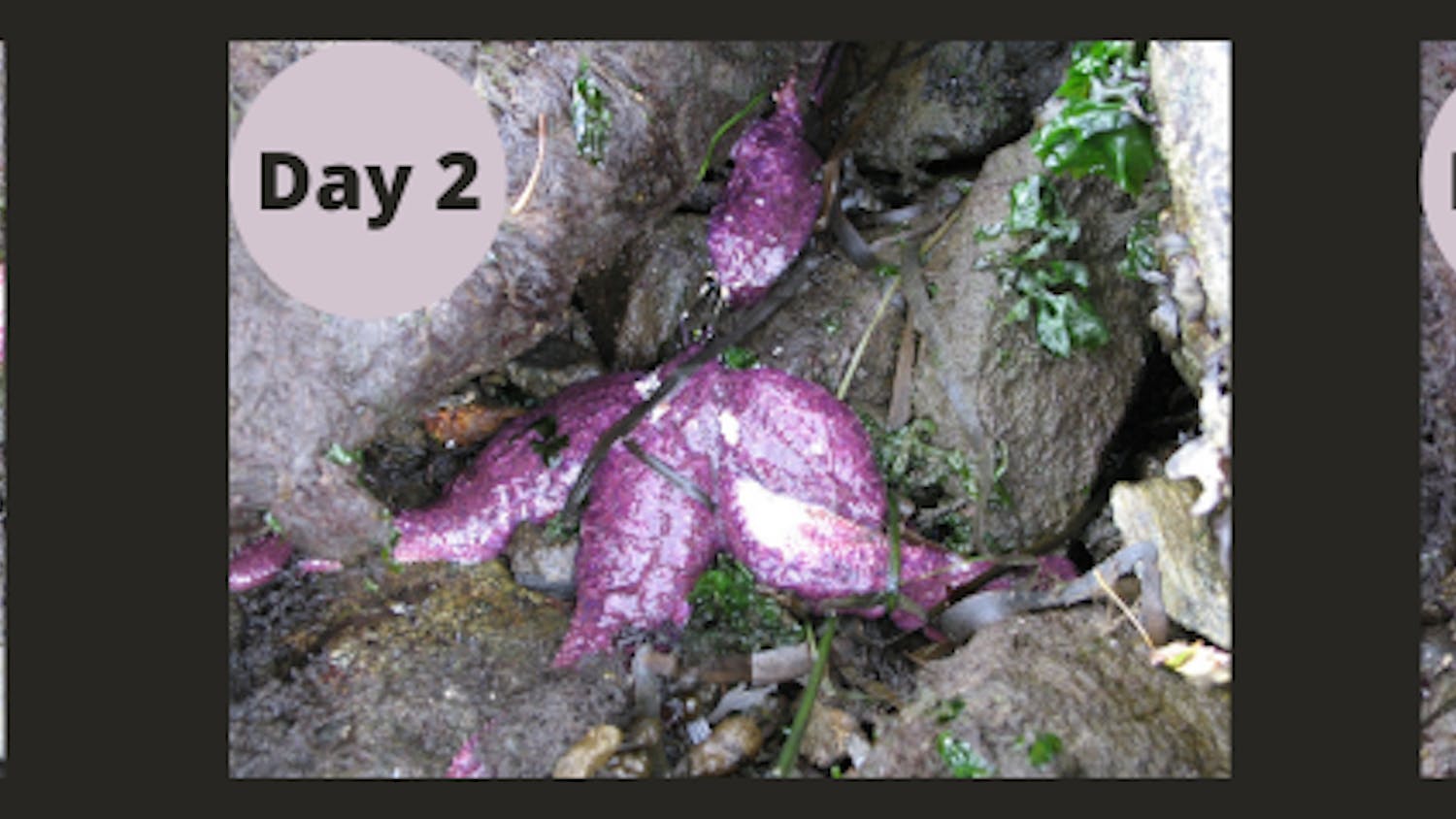After a year of not having the usual crowd of students on campus, the open spaces of campus have become more comfortable for the rest of the animal kingdom

Sarah Neugebauer, Western Washington University's pest biologist, poses for a picture in front of Old Maine's rose garden. Neugebauer specializes in maintaining wildlife on campus and keeping students and faculty safe from particularly nosey animals. // Photo by Hannah VanO
Saving baby raccoons, controlling bats in residence halls and taking in orphaned kittens are all a part of the job for Western’s pest biologist, Sarah Neugebauer.
Every day is different for Neugebauer, and since campus closed in March 2020, new residents have tried to move into the empty spaces around Western.
“We had an instance last summer where a bunch of windows were left open in some Fairhaven residence halls,” Neugebauer said. “They were trying to get some buildings ready to resume some residence, but a family of bats had already moved in.”
Not only have bats tried taking up occupancy on the empty campus, but deer are more comfortable than ever wandering the lawns and having a snack during the day.
Normally, the flow of students would keep them away, but with no one to be seen, the deer come out to play.
“Since the pandemic, we stopped having so much food and garbage on campus, so the rodent problems just vanished,” Neugebauer said. “We’ve had more birds and insects and it’s so interesting to see.”
While the animals are welcome on campus, the deer are infamous for eating flowers the groundskeepers would rather see bloom. Western’s landscapers prefer not to use pesticides on plants and seek to find alternative methods to keep animals at bay.
“There are a lot of plants the deer will eat like the roses and lilies, but we’ve found that mixing a dozen eggs with five gallons of water and pouring it at the base of the plants will keep the deer away,” said Stevie Mason, a grounds and nursery services specialist at Western.
Along with controlling the animal population on campus, Neugebauer is also a self-proclaimed “building doctor.”
“The animals are great indicators for telling me when something in a building is going wrong,” Neugebauer said. “When the ants and the birds start to show up, that means the building is stressed with age. When birds show up to buildings, that tells me the structure is weak and they can build nests.”
Eight-legged creepy critters spinning webs in echoing rooms and bed bugs hitchhiking back with students are possible problems for fall reopen. The rats and mice are also likely to scurry back due to their commensal nature, according to Neugebauer.
The notorious Western squirrels have also changed since the pandemic. Since no one has been feeding them, they’ve found different food resources and haven’t been bothering those that still work in the school.
Adam Theriault is a Western student who’s had first-hand experience with the wildlife at the university. At night, students could find deer grazing in front of the Old Main building and raccoons scavenging outside the Fairhaven commons, Theriault said.
Although many Western students consider the squirrels to be more aggressive when it comes to food, Theriault could argue the birds take the cake for that category.
“It was so weird. Two years ago, I was hanging out in the seventh floor Nash lounge that has a skylight, and I bought a sandwich from the Union,” Theriault said. “I was eating it and a seagull saw me and knocked on the skylight and stared down at me. It was the most bizarre thing.”
Students aren’t the only ones with nutty wildlife encounters. Being the school's go-to call for any unidentified sounds or smells, Neugebauer has seen it all.
“My craziest encounter had to be when I got a call from a student saying they could hear something above their bathroom and there was no way for me to open the ceiling and look, so we cut open the wall,” Neugebauer said. “There was a pipe from the fan going all the way up to the roof. Usually they’re capped with mesh but the mesh cap was missing and there was a squirrel down there.”
“We tried to grab the squirrel but he was really aggressive and I said I needed thicker gloves. Then this other guy said, ‘Well, I’ll do it.’ Long story short, he did it but he also got bit. Luckily, it’s very rare that squirrels carry rabies and after monitoring the animal for 24 hours, and being sure it didn’t carry it, we let the guy go. Then we find out he was actually protecting his other buddy in the pipe but his friend was already dead.”
When students come back to campus in fall, hopefully they’ll catch a glimpse of the more frequent wildlife on campus before things go back to normal.
Hannah VanO is a senior communications major with a public relations minor and reporter for The Front. Her work focuses on campus news. When not reporting, Hannah loves spending time with her pets and being outside. You can reach her athannahvano.thefront@gmail.com





